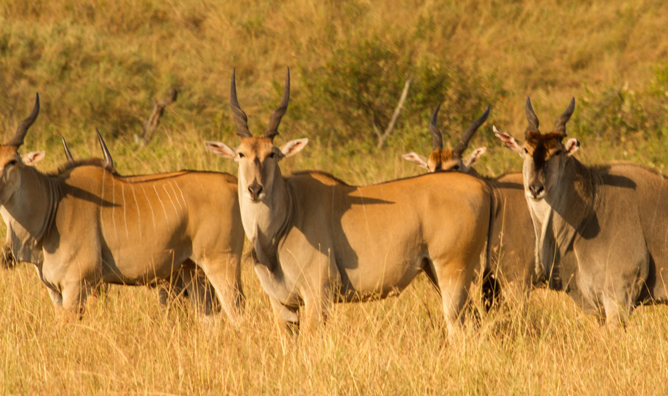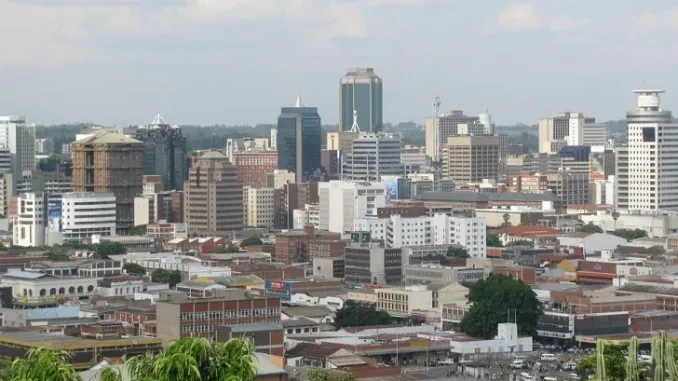
LACK of resources for operations and capital investment by the government have led to leaky and porous borders through which 29 sable antelopes, other game and special plants have been smuggled by gangs posing as tourists.
BY TONDERAYI MATONHO
This has contributed to a flourishing illegal trade in wild animals and plants and a trafficking boom that is proving hard to control, it has emerged.

According to a wildlife and environment expert leading a group that is monitoring illegal trade in wildlife, well-organised groups of locals and foreigners masquerading as tourists and working in cahoots with poachers, villagers and state officials are on the prowl along the country’s borders, particularly around major national parks, feeding the ever-growing local and international syndicates.
One such particular case unearthed by NewsDay happened recently. It involved a group of men and women who were accosted by Parks and wildlife officials just outside Gonarezhou National Park after a timely tip-off by villagers.
Neatly stashed away in their luggage were four live pangolins, toads, two dead pythons, five elephant tusks, three black rhinoceros’ horns, reptiles, three small tortoises and some unidentified special plant species.
Further information gathered indicate that upon interrogation, the group revealed that they had contact persons who smuggled the goods to South Africa, Botswana, Mozambique and finally to markets in Asia.
- Chamisa under fire over US$120K donation
- Mavhunga puts DeMbare into Chibuku quarterfinals
- Pension funds bet on Cabora Bassa oilfields
- Councils defy govt fire tender directive
Keep Reading
“The loot from the group of men and women outside Gonarezhou National Park and the recent alleged sable antelopes case across the Limpopo River, for example, are the latest known finds in what can be described as a sinister and growing trend in bio-piracy, the illegal trade in wildlife species,” said the leader of the monitoring group, a seasoned wildlife and environment expert, speaking on condition of anonymity.
“The government needs to improve resources for operations and capital investment for national parks along the country’s borders to prevent porousness and leakages in order to counter the smuggling boom which is proving hard to control at the moment.”
Apart from joint-security operations that will complement game rangers, the University of Zimbabwe is also expected to develop a wildlife tracking system.
Zimbabwe has been hit hard recently by poisoning of its elephants in the Hwange National Park and Matusadona National Park in Kariba using cyanide, seemingly in the hunt for ivory. The trend and the practice seem to continue unabated.
Conservation sources claimed this was the work of disgruntled game rangers and local villagers.
Environmental Management Agency (EMA) spokesperson, Steady Kangata, said: “Efforts to push for a Bill on Access to Benefit-Sharing in Parliament are underway and will help curtail bio-piracy and unsustainable forest practices”.
A charged-up Tsholotsho District Administrator, Nosizi Dube, told delegates at a climate change meeting in Harare recently that it was unfair to brand locals as poachers. “When locals hunt they are called poachers and when foreigners posing as tourists engage in the same activities they are called hunters while they continue to pillage our resources for foreign markets,” he said.
Meanwhile, a haul of 173kg of ivory was intercepted recently at the Harare International Airport, apparently bound for Singapore. According to environmentalists, bio-piracy is indeed big business with plants also increasingly attracting the interest of criminal networks.
The World Conservation Union notes that orchids, rare lilies and protea are uprooted from their tropical habitats and smuggled abroad, to be sold in North America, Europe and Japan. One species, the succulent hoodia cactus, found in the southern Africa region, a special root used for centuries by the Basarwa or Bushmen, to cure wounds and intestinal disorders is under threat from bio-piracy.
However, as the illegal trade continues to flourish, fuelled by unchecked demand in the North and inadequate controls and enforcement by national and regional governments, Dube noted that communities tended to retaliate by resorting to deliberately starting veld fires, poaching and cyanide poisoning. “They feel and know that they do not have the ownership of natural resources around them and also do not enjoy the personal economic benefits largely enjoyed by local elites and foreigners,” he said.
Experts also note that bio-piracy is estimated to be the world’s third biggest criminal activity, after arms and drug smuggling and the stakes are high.
Parks and wildlife management authorities assert that behind such thefts are highly organised networks of criminals.
Civil society organisations and farmers’ organisations have attempted, with little success, to prevent plants from being treated as intellectual property and being patented.
The past two decades have seen a growing interest on the part of researchers, investigators, international organisations, governments and civil society in protecting intellectual property rights and sharing knowledge and benefits on biodiversity.
“Legal systems are complex and sometimes inadequate. There is need to consolidate agreements for knowledge-sharing by supplementing them at each stage with more specific accords and strategies that are adapted to specific cultural contexts so that local capacities are rewarded and the people involved receive fair recompense”, said Zimbabwe Environmental Law Association director, Mutuso Dhliwayo.
Leader of the Community-Based Natural Resources Management Forum, Cecil Machena, said it was important to empower local communities to manage natural resources within their areas.
“One way of ensuring protection of the natural resource base from smugglers is for local communities themselves to manage these resources as a form of livelihood and income generation,” he said.
“With a wider spread of such sustainable techniques among communities with an abundance of such natural resource bases, the pillaging of millions of species by smugglers, would, at least, be controlled.”
Ministry of Environment, Water and Climate head of biodiversity, Chipangura Chirara, said traditional knowledge systems, especially in relation to protection of medicinal plants is becoming more and more widely recognised and as a result bio-piracy will be discouraged.











